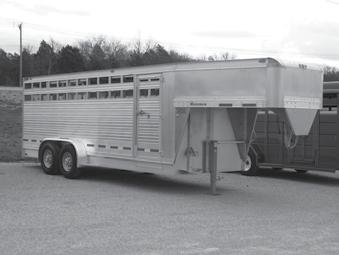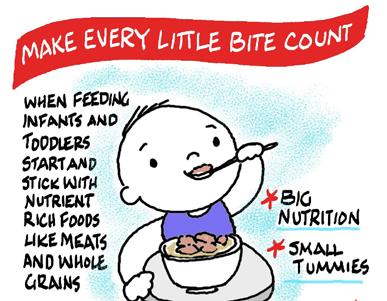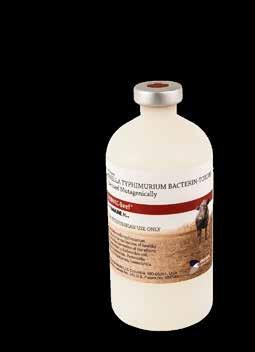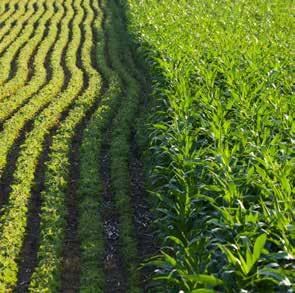
6 minute read
Dietary Guidelines Solidify the Benefits of Beef and a Healthy Diet
WASHINGTON (Dec. 29, 2020) – The National Cattlemen’s Beef Association (NCBA) today commends the U.S. Department of Agriculture (USDA) and the U.S. Department of Health and Human Services (HHS) for finalizing the 2020-2025 Dietary Guidelines for Americans (DGAs), which recognizes the role of lean beef in a healthy diet across all life stages and ages. Updated every five years, the DGAs serve as the foundation for federal nutrition policy and shape the recommendations found on USDA’s MyPlate. While there is no one-size-fits-all diet, “Beef is one of Americans’ favorite foods, and science consistently shows lean beef can be the cornerstone in a variety of healthy diets,” said NCBA President Marty Smith. “Now more than ever, the key to proper nutrition is giving people practical and realistic advice, to help create balanced diets that work for them – featuring foods they love, like beef, which pairs perfectly with other nutrient-rich foods,” The DGAs emphasized the importance of making every bite count by choosing nutrient-rich foods most often; that is easy to do with beef. No other protein food delivers the same nutrient-rich package as beef in about 170 calories, on average, per three-ounce serving of cooked beef. Beef is a good source of ten essential nutrients including high quality protein, iron, zinc, and choline with more than 30 lean cuts. “U.S. cattle producers appreciate the work of the committee, USDA and HHS on their sole focus on nutrition and science-based research to put together a set of recommendations that will benefit all Americans,” Smith said.
Monday • 5:30 PM Dinner served presale February 22 At the farm • Quality, KY
Selling Sons of
Connealy Commonwealth MGS Treasure • Yon Full Force C398 SS Niagara • Connealy Concord 60 Bulls 30 Registered Cows, most 3-in-1s 25 Registered Bred Heifers 25 Bred Commercial Heifers Call to Request a Sale Book
David Woodall, DVM (270) 847-1010 Gary Woodall (270) 725-0819 Luke Woodall (270) 889-1138 Woodallangus@aol.com www.woodallangus.com Follow us on Facebook @WoodallAngus Our Service • Foot Guarantee • Huge emphasis on soundness and foot quality • Breeder’s guarantee • Breeding soundness examined • BVD PI Tested • All bulls foot-scored Our program • Non-Pampered Forage Developed Bulls • Athletic bulls • Huge emphasis on fertility • Johne’s NG herd status with annual testing • Comprehensive herd health program
Free delivery with qualified purchases!
NEW OPPORTUNITIES FOR PANDEMIC RELATED FINANCIAL RECOVERY
CANDACE SMITH
Steptoe & Johnson, PLLC
Even though the calendar year is new, COVID-19 continues to have far reaching effects on the farming community. There is no question that food, commodity, labor, and energy markets were collectively jolted by global, national, and regional shutdowns as well as overall uncertainty in 2020. To help address these issues, Congress enacted the Consolidated Appropriations Act, a $900 billion stimulus package to aid Americans grappling with the economic and health toll of the pandemic, into law on December 27, 2020. The bill provides general aid to Americans, such as a $600 stimulus check to those who qualify. Of the $900 billion stimulus package, however, over $13 billion in funding directly benefits agriculture as well as provides support to farmers and ranchers. Specifically, the bill includes an estimated $5 billion to provide supplemental $20 per-acre payments to row-crop producers and an estimated $3 billion to provide payments to cattle producers, contract growers of livestock and poultry, dairy farmers and livestock producers who were forced to euthanize their livestock or poultry because of the pandemic and its impacts on the supply chain. These payments will be up to 80% of the fair market value of the euthanized animals. The bill also expands the Small Business Administration Paycheck Protection Program (“PPP”) previously established under the Coronavirus Aid, Relief, and Economic Security Act (CARES Act). There is now over $280 billion allocated for PPP loans to eligible new borrowers and qualifying borrowers that already received a loan under the first round of PPP funding. Previously, farmers’ participation in the PPP was based on 2019 net farm profits or losses. 2019 was not, however, a good year for selfemployed farmers and ranchers due to devastating natural disasters and trade wars. As a result, many farmers and ranchers may not have applied for or received a PPP loan under the CARES Act because of low or negative 2019 profits. To remedy this, the new stimulus bill allows farmers and ranchers to participate in the PPP and apply for a loan based on their 2019 gross income as opposed to net income. It also allows farmers and ranchers who received a PPP loan using their 2019 net income to recalculate their loan award using 2019 gross income if it would result in a larger loan amount. Therefore, many farmers and ranchers who were previously left out of aid earlier this year will now qualify for assistance. Notably, the new stimulus bill also ensures tax deductibility for business expenses paid with forgiven PPP loans. In short, highlights of the stimulus bill include: 80% reimbursement for losses due to premature euthanization or insufficient access to processing. $20 per planted acre for non-specialty crops., including corn, soybeans, malting barley, and canola, among others.
Participation in the PPP is now based on 2019 gross income instead of 2019 net income.
Business expenses paid with forgiven
PPP loans will now be allowed as a tax deduction. The Consolidated Appropriations Act could greatly benefit many farmers and help counteract the economic toll of the COVID-19 pandemic. A qualified attorney can help you determine how this new stimulus bill applies to you and how to best take advantage of the new PPP expansion.
These materials are public information and have been prepared solely for educational purposes. These materials reflect only the personal views of the authors and are not individualized legal advice. It is understood that each case is fact-specific, and that the appropriate solution in any case will vary. Therefore, these materials may or may not be relevant to any particular situation. Thus, the authors and Steptoe & Johnson PLLC cannot be bound either philosophically or as representatives of their various present and future clients to the comments expressed in these materials. The presentation of these materials does not establish any form of attorney-client relationship with the authors or Steptoe & Johnson PLLC. While every attempt was made to ensure that these materials are accurate, errors or omissions may be contained therein, for which any liability is disclaimed.
HERITAGE FARM SPRING SALE DATES Bull Sale • March 30, 2021 Female Sale • May 22, 2021

Two sales featuring Heritage Farm performance Genetics
Deer Valley Growth Fund Our bull sale scheduled for Tuesday evening; March 30, 2021 will have several sons of breed leading AI sires selling, including sons of this heavily used AI sire.
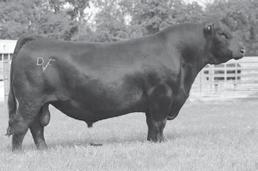
Heritage Farm will keep bulls, if you prefer, until May 1, 2021 and will offer FREE DELIVERY within 200 miles!
To request a sale book email rlong@rancelong.com or call 918-510-3464 or 502-655-0164



